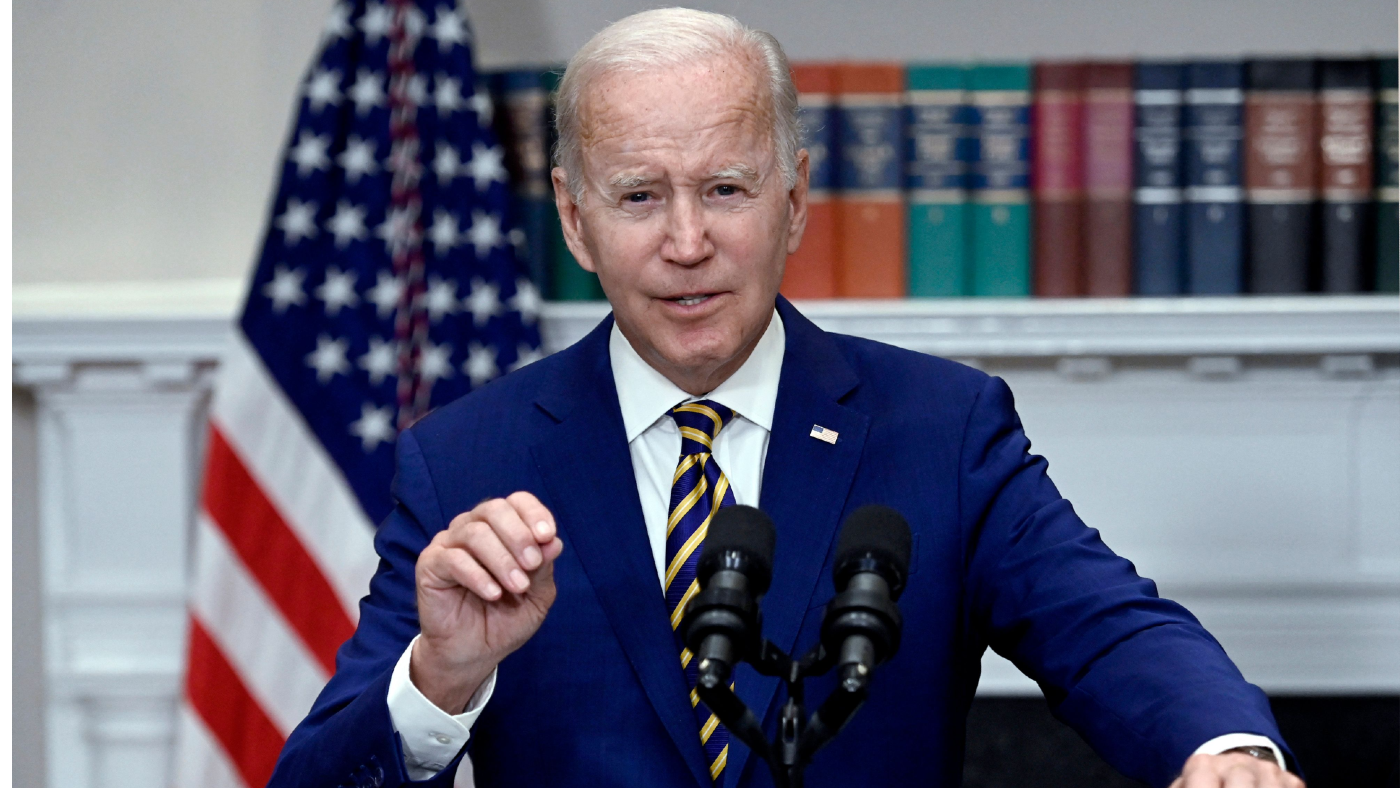Student loans: Biden cancels half-a-trillion of debt
Debt relief will ‘improve millions of lives’ but ‘does nothing to fix the underlying problem’

A free daily email with the biggest news stories of the day – and the best features from TheWeek.com
You are now subscribed
Your newsletter sign-up was successful
“Well, he did it,” said The Wall Street Journal. “Waving his baronial wand”, President Biden last week made good on a campaign promise by cancelling student debt for more than 40 million borrowers. Anyone earning under $125,000 a year will have $10,000 of their loans forgiven. Recipients of Pell grants, which go to students from low-income families, will be eligible for $20,000 in forgiveness.
All in all, the write-off could end up costing close to half-a-trillion dollars. “There has never been an executive action of this costly magnitude in peacetime”; and it’s a terrible decision that “makes chumps of congress and every American who repaid loans or didn’t go to college”.
It’s just so arbitrary, agreed Charles C.W. Cooke in National Review. College graduates earn more than non-graduates, and have an unemployment rate of just 3%. But Biden is nevertheless handing them a huge chunk of taxpayers’ money. Why? Because they’re a key part of the Democrats’ electoral base – the sort of people the party really cares about. “Electricians, store managers, deli workers, landscapers, waitresses, mechanics, entrepreneurs? Screw ’em.”
The Week
Escape your echo chamber. Get the facts behind the news, plus analysis from multiple perspectives.

Sign up for The Week's Free Newsletters
From our morning news briefing to a weekly Good News Newsletter, get the best of The Week delivered directly to your inbox.
From our morning news briefing to a weekly Good News Newsletter, get the best of The Week delivered directly to your inbox.
‘No handout to the rich’
Pay no heed to the Republicans’ predictable efforts to “wage class war” over this issue, said Timothy Noah in The New Republic. This is no handout to the rich. Plenty of working-class people carry a lot of student debt. Officials estimate that 90% of the benefit of Biden’s student-loan relief will go to people earning less than $75,000 a year.
The policy is part of the president’s model of “middle out” economics, which holds that the route to national prosperity is to ensure a thriving middle class, rather than relying on the GOP’s “trickle-down strategy of shovelling tax cuts to ‘job creators’”, who typically use the money just to enrich themselves.
This debt relief will improve millions of lives, said Paul Waldman in The Washington Post. It could wipe out the student debt of a third of borrowers, and cut the debt of another 20% by at least half. That’s about 24 million Americans whose lives will be “profoundly aided, enabling them to pay other bills or maybe even start saving”.
‘Won’t fix underlying problem’
Biden’s one-off debt cancellation will certainly help today’s struggling borrowers, said Robby Soave in Reason. But it does nothing to fix the underlying problem. Biden talked of an “entire generation” of college students being “saddled with unsustainable debt” that in too many cases denied them “access to the middle-class life that the college degree once provided”. That’s a damning indictment of the federal loan programme, yet there are no moves to reform it.
A free daily email with the biggest news stories of the day – and the best features from TheWeek.com
The system needs to change if we’re to escape this spiral of ever-rising college fees and debt, agreed Oren Cass on Politico. College should be financed by part-time jobs, means-tested grants and, if necessary, ordinary loans. If students need more funding for fancy colleges, that money should come from the colleges themselves. Just as car manufacturers provide financing for their vehicles, so colleges should do the same. That would incentivise them to control costs and ensure their students’ future career success. If the model pushed by college administrators isn’t working, “let them, not their students, suffer the consequences”.